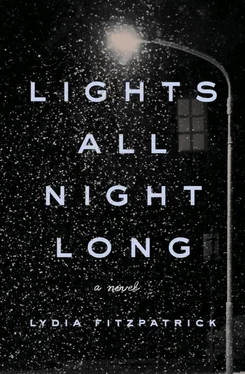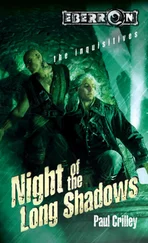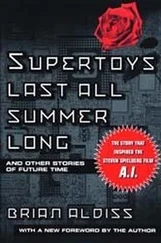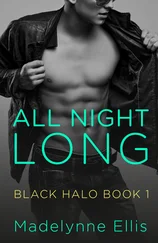Lydia Fitzpatrick - Lights All Night Long
Здесь есть возможность читать онлайн «Lydia Fitzpatrick - Lights All Night Long» весь текст электронной книги совершенно бесплатно (целиком полную версию без сокращений). В некоторых случаях можно слушать аудио, скачать через торрент в формате fb2 и присутствует краткое содержание. Город: New York, Год выпуска: 2019, ISBN: 2019, Издательство: Penguin Press, Жанр: Современная проза, на английском языке. Описание произведения, (предисловие) а так же отзывы посетителей доступны на портале библиотеки ЛибКат.
- Название:Lights All Night Long
- Автор:
- Издательство:Penguin Press
- Жанр:
- Год:2019
- Город:New York
- ISBN:978-0-52555-873-6
- Рейтинг книги:3 / 5. Голосов: 1
-
Избранное:Добавить в избранное
- Отзывы:
-
Ваша оценка:
- 60
- 1
- 2
- 3
- 4
- 5
Lights All Night Long: краткое содержание, описание и аннотация
Предлагаем к чтению аннотацию, описание, краткое содержание или предисловие (зависит от того, что написал сам автор книги «Lights All Night Long»). Если вы не нашли необходимую информацию о книге — напишите в комментариях, мы постараемся отыскать её.
Lights All Night Long — читать онлайн бесплатно полную книгу (весь текст) целиком
Ниже представлен текст книги, разбитый по страницам. Система сохранения места последней прочитанной страницы, позволяет с удобством читать онлайн бесплатно книгу «Lights All Night Long», без необходимости каждый раз заново искать на чём Вы остановились. Поставьте закладку, и сможете в любой момент перейти на страницу, на которой закончили чтение.
Интервал:
Закладка:
“Why did you let him?” the newscaster asked. A stupid question made insulting by the way she tilted her head as if in commiseration.
The girl did not seem to mind. “He paid me so much,” she said. “It was a bad week, then a good year.”
Vladimir, the “local teen,” was never named, and Ilya worried it wouldn’t be enough, that somehow Vladimir would be allowed to languish in prison, innocent, but a victim of bureaucratic neglect nonetheless. Then his mother called, and for a full minute she cried so hard that she couldn’t get a word out.
“Mama,” he said. “Mama, what is it?”
“They’re letting him go,” she managed. “A lawyer called. After the arraignment, they’re letting him free. We’re going tomorrow—to Syktyvkar—and we’ll stay until he’s out.” She paused, and then she said, “How did you do it?”
Ilya told her about the tape, about calling Maria Mikhailovna. His mother paused, and he could feel her debating whether to tell him something.
“What is it?” he said.
“I saw her,” his mother said. “She was standing on the square, right by the bench where that American used to stand, and for a second I thought that she’d lost her mind, that she was handing out the same pamphlets that he used to. The ones I sent you. I was too afraid to go over to her, but it didn’t matter, because the letter was everywhere. In all the newspaper boxes. At every kiosk. In our mailbox. She taped them to the door of the House of Culture, the police station, every tree on the square.”
“His letter?” Ilya said.
“Yes,” his mother said, and Ilya imagined Maria Mikhailovna finding the letter on her pillow or on the kitchen table or on the chair by the window that had been his. She’d read it once, twice. With a thick marker she’d inked out the lines beginning with Masha , which only he had called her, and then she’d walked across the square to the school. She’d copied the letter on the ancient machine in the teachers’ lounge, the one that was half the size of a car and smelled of burnt oil and that sometimes expelled papers with such force that they took flight in that tiny room. She’d watched each copy slip out of the machine, each one a promise, a hope that what had happened could not be ignored or denied. Each one proof of Vladimir’s innocence.
Ilya was in the kitchen. The Masons were moving around him in the way water moves past an obstacle to which it’s grown familiar, and it wouldn’t be the worst thing, he decided, if they saw him cry.
That night, he asked them if he could give a testimonial.
“Of course,” Mama Jamie said. She’d held him after his mother called, and there was still a damp patch on her shirt from where his face had been pressed against her. “I can call Pastor Kyle and let him know,” she said.
“I want to do it now,” Ilya said. “Here.”
Mama Jamie looked at Papa Cam, and Marilee opened her mouth to explain that this was not how testimonials worked, that they came after the hymns and before the sermons, that it was not even Sunday, but Papa Cam did not give her a chance. He clapped a meaty palm over her mouth and said, “Of course.”
So Ilya stood on the fire skirt, where he’d posed for the picture on the first day of school, and the Masons sat on the couch, close enough that he could have stretched out a leg and touched their knees with his toes.
Sadie smiled at him, and Mama Jamie said, “Remember, you’re telling God, not us.”
Ilya nodded, though he was not telling God, he was telling them.
He started at the very beginning: “I was six years old,” he said, “when I learned my first word of English.” He told them that it was the sort of word you weren’t supposed to say, and then he said it aloud anyway because the whole point of this was admitting the truth. He told them how Vladimir had lifted him up onto the balcony rail and made him shout it out across the courtyard. And even now, a decade later, he still couldn’t say whether it was a moment that he would undo, because everything terrible that had happened to him was rooted in it, but so was everything good.
He told about Maria Mikhailovna, and the books Vladimir had bought him at the shop on Ulitsa Snezhnaya, and of Michael and Stephanie, and the hours and hours he’d spent listening to them, and studying, and the way each hour had seemed to lay a brick in a wall between him and Vladimir. Telling his story, something strange happened. Time folded back, or else it split open. It seemed somehow less linear, so that he remembered yelling from the balcony, his body small enough that Vladimir could hold him with one arm, but in the same moment he could see Lana’s birch grove with its wilting flowers and damp ribbons, and at the school, Maria Mikhailovna looked up, her hand poised above a test with his name on it. In the square, on his bench, Gabe Thompson cried out in his sleep. Vladimir was behind Ilya, propping him up, his breath hot on the back of Ilya’s shirt, but he was in the Tower too, in that horrible room with the rug over the window and the tapes in their bag in the corner. He and Aksinya and Lana and Sergey, boney and desperate and doomed, dancing like children to some song from the ’80s that no one in America listened to anymore. And Dmitri Malikov was in his patrol car, his face milky in the refinery’s light, as he drove in an endless loop around the town.
It was a horrible story. He could tell from their utter silence, from the way even Marilee and Molly were still, mesmerized by the badness of the things people did to each other and themselves. Still, though, there was something beautiful in the telling of it. Vladimir had told him that krokodil made him remember, that it was like he was present in his memories and like he was holding them at the same time, and it was like that for Ilya now. They were all around him—Vladimir, his mother, Dmitri, Maria Mikhailovna—every version of them, the good and the bad, and he himself felt as though he were gaining dimension, becoming as solid and present as the stone he’d plucked out of the creek, which even in the hot damp of his palm had seemed endlessly cool, like it had a source of energy all its own.
He sped up as he neared the end—the forced confession, Dmitri’s suicide, Fetisov’s guilt, Vladimir’s release. “Vladimir’s not good,” he said. “I know that. There’s plenty he’s done to be ashamed of. And there were so many ways that his plan could have gone wrong. So many ways. When I think of them, I’m so scared that I can’t breathe. But then I remember why he did this—”
Mama Jamie was wiping at her wet cheeks, and Papa Cam was staring at him with an expression of frank wonder.
“So that I could be here.”
This was the end, but somehow it gave him a feeling of vertigo, of running a step too far off a cliff. He thought of Sadie, and her nightly pilgrimage. He thought of Sadie’s mother slumped on that couch. He thought of Vladimir, of his confession and the way that each word had sounded like a wound so that by the end he’d barely been able to talk. Ilya had earned the Masons’ forgiveness—he could see that—but it wasn’t enough.
He cleared his throat. “I know that I don’t have the right to ask you all for anything,” he said. “I don’t deserve to be here, and you know that now—but still I have to ask: let Vladimir come here. Please. Let him come too.”
In the quiet that followed, Ilya could hear the hiss of cars on Route 21. Somewhere far off a siren whined. Sadie was crying silently. This smile shook on her lips, and Ilya smiled back at her.
“Please,” Molly said, as though Ilya had asked for a dog for Christmas and she wanted one too.
Marilee bit her lip and said, “Hmmm. That’s a lot to forgive.”
Читать дальшеИнтервал:
Закладка:
Похожие книги на «Lights All Night Long»
Представляем Вашему вниманию похожие книги на «Lights All Night Long» списком для выбора. Мы отобрали схожую по названию и смыслу литературу в надежде предоставить читателям больше вариантов отыскать новые, интересные, ещё непрочитанные произведения.
Обсуждение, отзывы о книге «Lights All Night Long» и просто собственные мнения читателей. Оставьте ваши комментарии, напишите, что Вы думаете о произведении, его смысле или главных героях. Укажите что конкретно понравилось, а что нет, и почему Вы так считаете.












